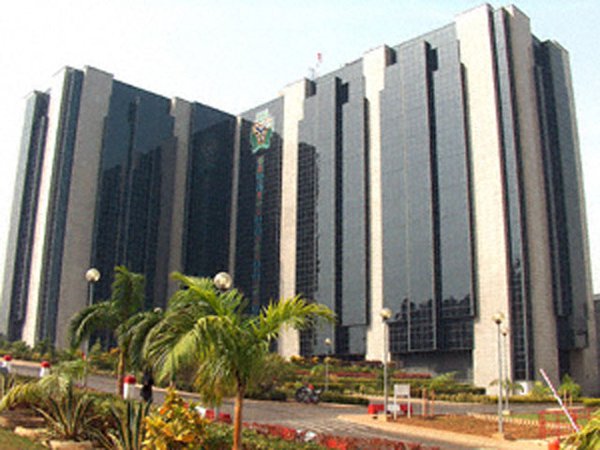Business
CBN Issues Guidelines For Payments Service Holding Companies

The Central Bank of Nigeria, CBN, has issued guidelines for licensing and regulation of Payments Service Holding Companies, PSHCs, in the country.
The apex bank, yesterday, disclosed this in a circular to all Deposits Money Banks, Payment Service Providers and Other Financial Institutions.
The guidelines, stated: “The regulation requires companies desirous of operating more than one licence category, to set up a PSHC, with activities of subsidiaries clearly delineated.
This arrangement would prevent commingling of activities, facilitate management of risks and enable the CBN exercise adequate regulatory oversight on all the companies operating within the Group.
“The affected regulated payment activities are: Mobile Money Operations, Switching and Processing, Payment Solution Services and any other activity as may be approved by the CBN.”
On activities that are permissible and non permissible, the guidelines stated: “Except as listed in Section 5.2, the activities of the PSHC shall be restricted to the holding of equities in financial and technological subsidiaries that facilitate and/or enhance innovative digital financial services.
The PSHC can provide broad policy direction, shared services and/or enter into technical or management service contract with any of its subsidiaries, with the prior written approval of the CBN, in respect of the following areas: Human Resources services; Risk Management services; Internal Control services; Compliance services; Information and Communication Technology; Legal services; Facilities (office accommodation including electricity, security, cleaning services in that accommodation); and, Any other services as may be approved by the CBN from time to time.
“Shared services shall be provided on arm’s length basis. Transactions in respect of such services shall require the consent of the Board of Directors of the subsidiary.
“A PSHC is prohibited from undertaking the following activities: Establishment, divestment and closure of subsidiaries, without the prior written approval of the CBN.
“Deriving or receiving income from sources other than as listed herein: Dividend income from its subsidiaries/associates; Income from shared services, where applicable; Interest earned from idle funds invested in government securities or placement with licensed financial institutions.
“Patents, royalties and copyrights; Profit on divestment from subsidiaries/associates; and any other source as may be approved by the CBN.
Business
FG, Investonaire Academy Unveil National Programme to Equip 100,000 Youths with Financial Skills, Digital Wealth Tools

By Joel Ajayi
The Federal Government, in collaboration with Investonaire Academy, has unveiled a nationwide financial literacy and wealth-building programme targeting more than 100,000 young Nigerians. The initiative is designed to equip participants with practical skills in budgeting, saving, investing, asset building, and long-term financial planning, positioning them for sustainable prosperity in a rapidly evolving economy.
Launched on Tuesday in Abuja, the Honourable Minister of Youth Development, Comrade Ayodele Olawande, described financial literacy as a necessary survival tool for young people confronting today’s economic realities.
He noted that the initiative represents the foundation of a broader vision expected to extend beyond Nigeria to other African nations and global markets.
Reaffirming the Federal Government’s commitment to supporting over 4,000 corps members annually, the Minister said the programme will provide platforms, resources, and skills needed for both job creation and employability.
“The young people who understand money — how to save, invest, build assets, and manage risk — are the ones who will lead Nigeria into prosperity,” he said.
A major highlight of the launch was the expansion of the Nigeria Youth Academy, a digital platform offering mentorship, training, and startup support. According to the Minister, more than 200 startups will receive empowerment through the Academy’s e-app platform before the end of the year.
He stressed the need for deeper collaboration with private organisations, innovators, and youth-focused groups, noting that government alone cannot drive youth development. He further encouraged young Nigerians to embrace skills acquisition, innovation, and digital enterprise, saying these remain critical to reducing the desire for migration and increasing self-reliance.
Outlining the Ministry’s long-term commitments, Olawande emphasized three priorities: supporting youth innovation, equipping them with growth tools, and safeguarding millions of Nigerian youths under the Ministry’s mandate.
Speaking at the launch, Sebastien Sicre, Chief Operating Officer of Investonaire Academy, said the programme was crafted to revolutionize the way Nigerian youths learn and apply financial knowledge. He highlighted the Academy’s gamified Learning Management System (LMS), which offers interactive learning tools, community forums, and real-time mentorship to make financial education engaging and accessible.
Complementing the digital platform is a new 200-square-metre physical training centre in Abuja, opposite the NNPC Towers, where in-person workshops and mentorship sessions will take place.
The curriculum covers key global asset classes — including equities, commodities, forex, and indices — ensuring participants gain a broad understanding of financial markets.
Sicre added that with Federal Government backing, the programme seeks to unlock new opportunities, strengthen youth participation in the digital economy, and reward outstanding participants through a $1 million funding pool to support new and existing ventures.
International Programme Director of Investonaire Academy, Dr. Enefola Odiba, explained that the initiative aims to bridge long-standing gaps in financial education among Nigerian youths. While schools teach many subjects, he said, essential financial skills are often missing.
“Many people can earn money — earning money can be easy. The real challenge is retaining, managing, and growing that money,” he noted.
Referencing the Central Bank of Nigeria’s definition of financial literacy, Odiba stated that implementation remains a major national challenge. He said the initiative brings together government agencies, youth groups, academic institutions, and private-sector partners to translate strategy into measurable impact.
The programme’s curriculum covers budgeting, saving, investing, and financial planning — areas where many young people struggle. By offering practical training, real-world insights, and guided mentorship, the initiative aims to build a generation of financially empowered youth capable of driving innovation, entrepreneurship, and sustainable economic growth.
With this partnership, the Federal Government and Investonaire Academy share a common goal: to empower young Nigerians with the financial intelligence and digital tools needed to build wealth, grow businesses, and transform the nation’s economic future.
-

 Featured6 years ago
Featured6 years agoLampard Names New Chelsea Manager
-

 Featured6 years ago
Featured6 years agoFG To Extends Lockdown In FCT, Lagos Ogun states For 7days
-

 Featured6 years ago
Featured6 years agoChildren Custody: Court Adjourns Mike Ezuruonye, Wife’s Case To April 7
-

 Featured6 years ago
Featured6 years agoNYSC Dismisses Report Of DG’s Plan To Islamize Benue Orientation Camp
-

 Featured4 years ago
Featured4 years agoTransfer Saga: How Mikel Obi Refused to compensate me After I Linked Him Worth $4m Deal In Kuwait SC – Okafor
-
Sports3 years ago
TINUBU LAMBAST DELE MOMODU
-

 News11 months ago
News11 months agoZulu to Super Eagles B team, President Tinubu is happy with you
-
Featured6 years ago
Board urges FG to establish one-stop rehabilitation centres in 6 geopolitical zones
